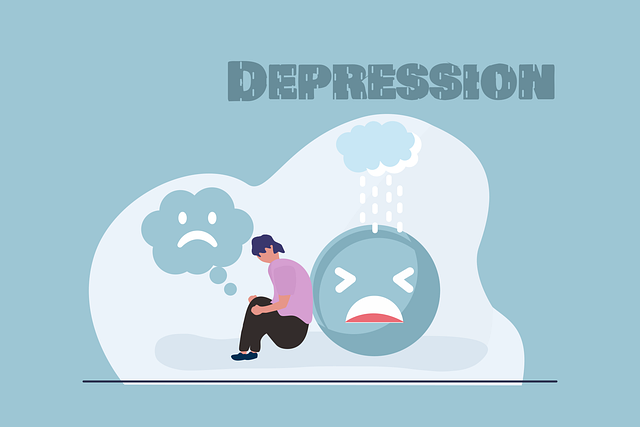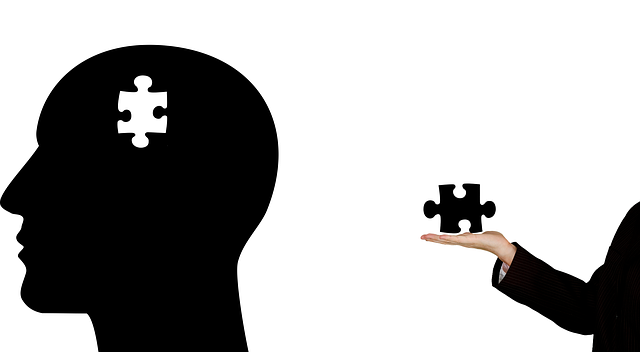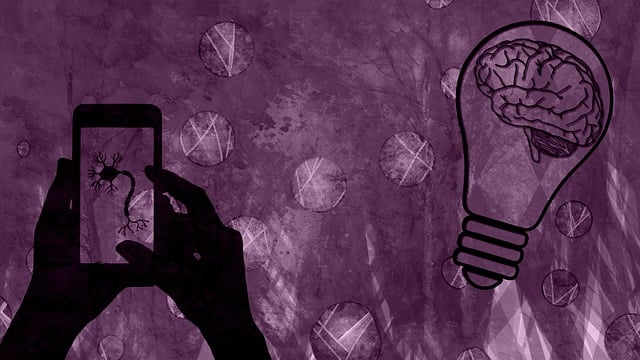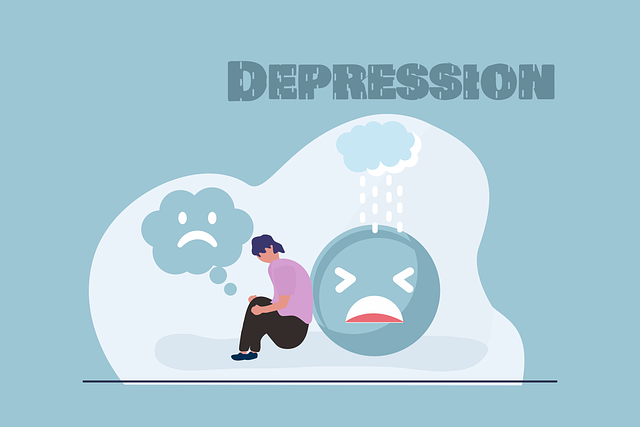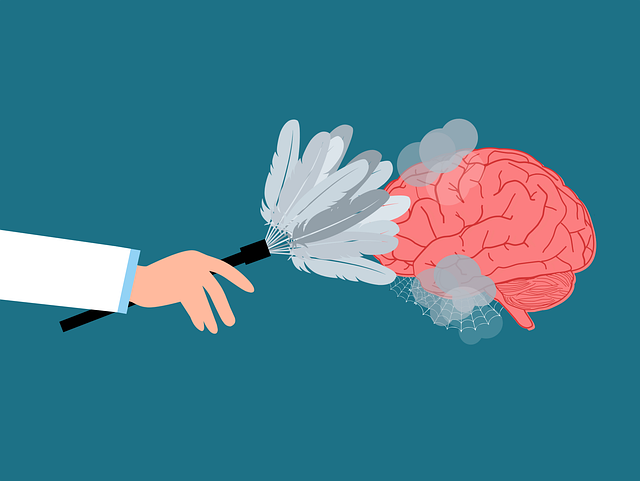Bipolar disorder, characterized by extreme mood swings, significantly affects daily life. Arvada offers effective therapy, including medication, psychotherapy, and support groups, empowering individuals to manage symptoms and lead fulfilling lives. Reducing stigma through education campaigns, open conversations, and self-care practices is crucial. Cognitive-behavioral therapy (CBT) and dialectical behavior therapy (DBT) break down barriers, while Arvada Bipolar Disorder Therapy provides mental wellness coaching for stabilization and recovery advocacy. This comprehensive approach increases mental health awareness and supports individuals in navigating bipolar disorder challenges.
In the quest to destigmatize mental illness, understanding conditions like bipolar disorder is paramount. This article explores bipolar disorder and its profound impact on daily life, offering insights into strategies for reducing stigma around mental health issues. We delve into the transformative power of therapy in overcoming bipolar disorder stigma, specifically highlighting Arvada Bipolar Disorder Therapy as a beacon of hope for those seeking support.
- Understanding Bipolar Disorder and Its Impact on Daily Life
- Strategies for Reducing Stigma Around Mental Health Issues
- The Role of Therapy in Overcoming Bipolar Disorder Stigma
Understanding Bipolar Disorder and Its Impact on Daily Life

Bipolar Disorder, often referred to as a mood disorder, is a complex mental health condition characterized by extreme emotional shifts, including periods of mania (elevated or irritable mood) and depression. Individuals experiencing bipolar disorder may face significant challenges in their daily lives due to these fluctuating moods. During manic episodes, they might exhibit increased energy, rapid speech, and impulsive behaviors, while depressive phases can lead to feelings of sadness, hopelessness, and a loss of interest in activities once enjoyed.
Understanding this condition is crucial for reducing stigma. Many people struggle with bipolar disorder often face societal misconceptions and misunderstandings. In Arvada or any other city, Bipolar Disorder Therapy plays a vital role in managing symptoms, improving quality of life, and fostering confidence. Effective treatment strategies, including medication, psychotherapy, and support groups, can help individuals gain control over their moods, enhance coping mechanisms, and reduce the impact of anxiety relief, thereby enabling them to lead fulfilling lives and navigate their emotional landscape with greater ease.
Strategies for Reducing Stigma Around Mental Health Issues

Reducing stigma around mental health issues is an essential component of fostering understanding and support for individuals dealing with conditions like bipolar disorder. One effective strategy involves education and awareness campaigns that challenge misconceptions and promote empathy. Encouraging open conversations about mental illness in communities, schools, and workplaces can help normalize these discussions. Arvada Bipolar Disorder Therapy, for instance, can benefit from community outreach programs that educate the public about the symptoms, treatment options, and experiences of those living with bipolar disorder.
Self-care practices are another powerful tool in stigma reduction efforts. Promoting self-compassion and coping mechanisms encourages individuals to seek help without fear of judgment. Healthcare Provider Cultural Competency Training is also crucial; equipping professionals with the knowledge to offer sensitive, effective care can significantly impact how patients with mental health conditions are perceived and supported. By integrating these strategies, communities can create a more inclusive environment where those struggling with bipolar disorder or other mental health issues feel empowered to seek the help they need.
The Role of Therapy in Overcoming Bipolar Disorder Stigma

Stigma surrounding bipolar disorder can often prevent individuals from seeking help and understanding their condition. This is where therapy plays a pivotal role in breaking down barriers and fostering recovery. Through various therapeutic approaches, such as cognitive-behavioral therapy (CBT) or dialectical behavior therapy (DBT), individuals with bipolar disorder can develop coping strategies to manage their symptoms effectively.
Arvada Bipolar Disorder Therapy focuses on empowering clients by enhancing their inner strength and resilience. Mental wellness coaching programs help patients navigate the complexities of bipolar disorder, improve mood stability, and reduce episodes of depression and mania. By participating in these therapeutic interventions, individuals not only gain a deeper understanding of their illness but also learn to advocate for themselves in pursuing treatment and maintaining mental health. This comprehensive approach contributes significantly to increasing Mental Health Awareness and supporting those affected by bipolar disorder on their path to recovery.
Stigma reduction is a vital step towards creating a more understanding and supportive society for those living with bipolar disorder. By raising awareness, educating communities, and promoting open conversations about mental health, we can dispel misconceptions. The article has explored the impact of bipolar disorder on daily life and highlighted effective strategies, including therapy, to overcome associated stigma. Seeking professional help, such as Arvada Bipolar Disorder Therapy, is a powerful tool for managing symptoms and fostering a more accepting environment. Together, these efforts can lead to improved mental well-being and enhanced social integration for individuals navigating this complex condition.








